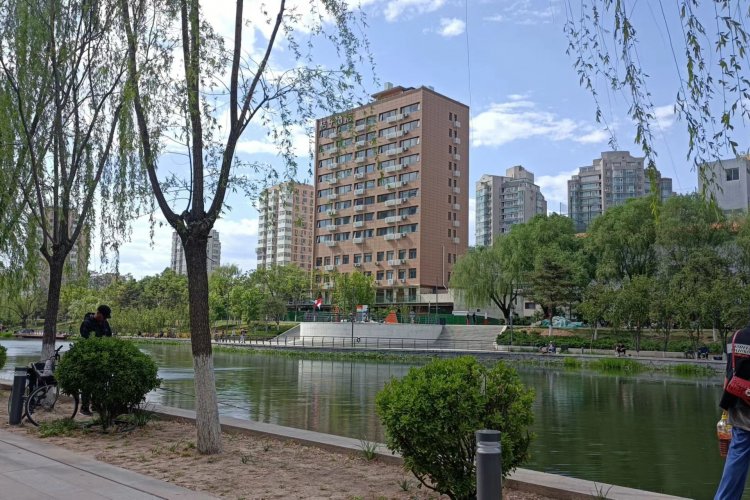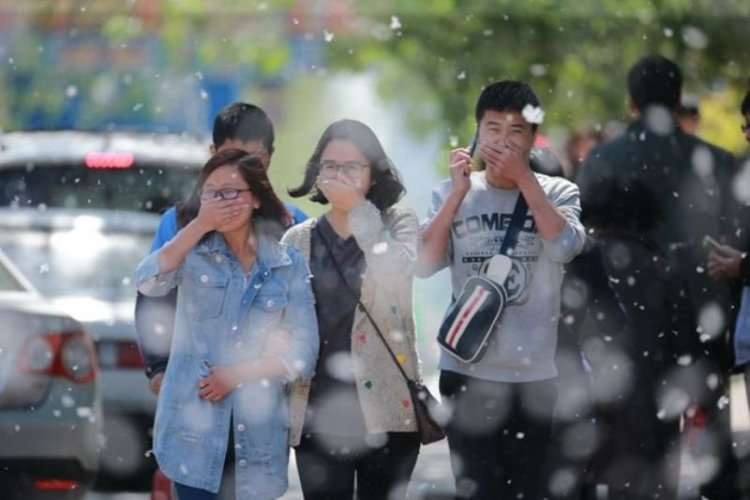News You Might Have Missed: Tigers, Pandas, PM2.5 and Pests
Tiger cubs need your help deciding their names and a panda proves to be not so cute. Beijing’s air and water continues to look murky, even with some recent regulations towards cutting down on the pollution. Lastly, tiny intruders in your home and in public restrooms are getting the boot.
If you’ve ever wanted to name a tiger, now’s your chance. Three white tiger babies were recently born at the Badaling Zoo, and park officials want the public to come up with monikers for the rare cubs. The zoo's only suggestions is that the names be simple enough for the trainers to use. They’re even offering prizes that include photo-ops and a figurine of the cubs. To submit your names, call the zoo at 6600 2236 (Mandarin only).
Some more animal news comes from Beijing Zoo, where Gugu the panda recently attacked an intruder in his enclosure. This is the fourth time he has attacked a trespasser. The man's injuries were not serious, but anyone planning to jump any zoo fences would do best to keep their legs away from Gugu.
Beijing's Environmental Protection Bureau (EPB) is conducting crackdowns on factories and chemical plants that contribute to PM2.5 levels, which comprise the most hazardous particulates in the air. Authorities have stated they will shut down any factories that fail to meet regulation guidelines, though exactly what the standards are is unclear. Industrial pollution accounts for 16 percent of Beijing's local pollution, while 25 percent of the total bad air comes from surrounding areas. The EPB has also started posting ozone levels online daily, which, as expected, show levels that are well beyond international standards and can pose health risks to individuals with asthma or chronic bronchitis. Despite these changes, the vice mayor of Beijing, Hong Feng, has suggested that Beijing won’t meet national pollution standards for 18 to 20 years.
In other environmental news, Beijingers may start getting their drinking water from the Yellow River due to the ongoing water shortage. Beijing has been in a drought for 13 years and many water sources are heavily polluted as mentioned in October's issue of the Beijinger.
Everybody knows about the current campaign to root out illegal foreigners, but another smaller crackdown in the city is being planned to take care of some indoor pests. Forty-one percent of Beijing families have complained of ant infestations and in response the government will begin using neurotoxins to get rid of the pests.
Who else is being told in no uncertain terms that they are unwanted? Flies, particularly in public restrooms. A new management policy released earlier in May states that Beijing public toilets can have no more than two pieces of rubbish on the floor (which must be picked up within 30 minutes) ... and cannot contain more than two flies at any time. This news item has been widely covered (and ridiculed) in foreign media, but what you may not know is that there are similar policies in other Chinese cities. Nanchang toilets are allowed up to three flies and Nanjing toilets shall have no more than five. All things considered, Beijing's doing pretty well.
Photos: firstnews.co.uk, globaltimes.com
Related stories :
Comments
New comments are displayed first.Comments
![]() baixue
Submitted by Guest on Fri, 06/01/2012 - 10:02 Permalink
baixue
Submitted by Guest on Fri, 06/01/2012 - 10:02 Permalink
Re: News You Might Have Missed: Tigers, Pandas, PM2.5 and ...
So the poor panda gets a bad rap when it tries to protect it's territory from an unknown intruder? Why are people continually surprised when wild animals behave like wild animals?
And why hasn't the Beijing zoo made the panda enclose people-proof yet? Every year or so I hear about another "panda attack" at the Beijing zoo.
![]() bluefish
Submitted by Guest on Thu, 05/31/2012 - 16:50 Permalink
bluefish
Submitted by Guest on Thu, 05/31/2012 - 16:50 Permalink
Re: News You Might Have Missed: Tigers, Pandas, PM2.5 and ...
Oh great. Maybe I'll tear up my visa and turn myself in. Not sure I want to hang around for all the neurotoxin spraying.
Validate your mobile phone number to post comments.


